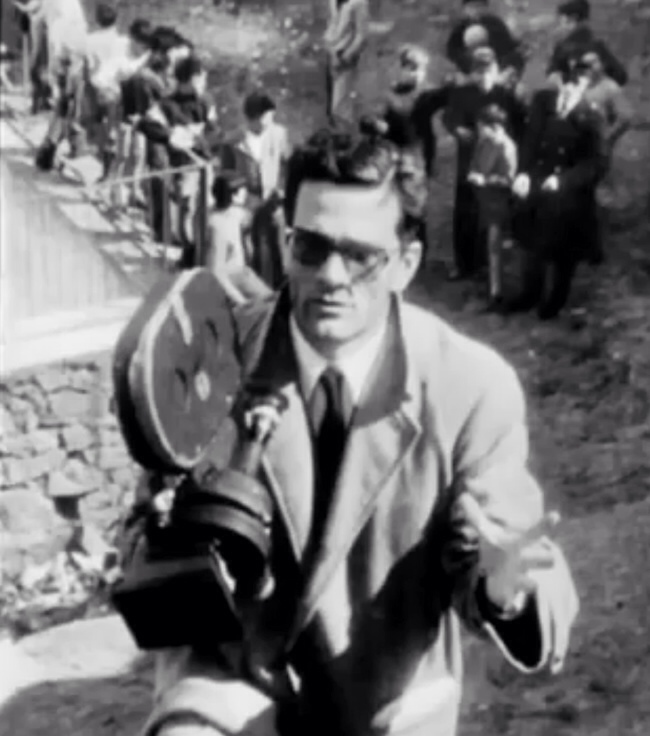This is a Dutch documentary about dangerously anti-establishment Italian poet and filmmaker Pier Paolo Pasolini, who was brutally murdered in 1975 under extremely suspicious and unexplained circumstances. The Italian justice system – if such a phrase doesn't make you bust a hernia with too much laughing – dismissed his death as the act of a single young man upset about the filmmaker's sexual advances. This film points out that Pasolini was utterly smashed, his body broken and shattered everywhere. He'd been beaten and run over with a car. The evidence does suggest that he was slain by a group. Director Philo Bregstein attempts to draw a connection between the outrage caused by Pasolini's leftist, harshly critical works and his death. It's a tough connection to fit together because there is really very little good police work done by the Italians to provide any reliable information. I remember going to Italy as a boy and upon seeing an Italian policeman saying to my father, “But that's not a real policeman!” That was one year before Pasolini was killed.
There's just something always ridiculous about an Italian who either thinks they are a cop or a soldier. The country is absurd. It elects Berlusconi, a man who is actually a monkey, as if the entire nation just wants to make a big joke and cause the world to laugh at its expense.
My main reaction to this documentary is nostalgia for a time when the work and thinking of filmmakers and poets was taken seriously enough to warrant a documentary that immerses one in the mind of an artist. We don't see that anymore. We get jokey pop nonsense about what people are up to, but nothing approaching an understanding of a director's viewpoint. We are spoon-fed pablum about the moronic Martin Scorsese's eternal and cuddly love of cinema. The guy is a chipper little dolt who cannot function without De Niro's slightly winded masculinity nearby. A documentary about such a clown would not be worth making. I imagine him with a collection of old popcorn makers in his living room. Pasolini was engaged, angry, excited, subtle, harsh, contradictory, confused, dangerous, and beautifully unlikable. We don't allow those people to work now. What we get through an endless comment feedback loop are feeble protests about Tarantino's massive ego as he thinks he can be white and make a film about slavery. Tarantino's Django Unchained is actually the closest thing to Pasolini that this country may have ever produced. The present day outrage and the joy of expressing it is like a bomb going off throughout the length of that film which I consider a masterpiece.
A documentary like this makes me feel as if the world needs these people like Pasolini to show us how beautiful is a lack of common sense. How insightful contradiction can be. How anger and violence are really the material of poetry.
By the way, the story told by Bernardo Bertolucci about how he first met Pasolini is worth the entire film. That moment of doubt, of thinking that someone is a thief, a suspicious person, is at the heart of what an artist is. Listen to that part carefully and then think about how most artists now want to do something good for you. Take those artists out in the alley and shoot them. Leave only the bad guys alive.

Pingback: cinephilearchive: Whoever Says the Truth Shall Die, 1981… | bavatumblr